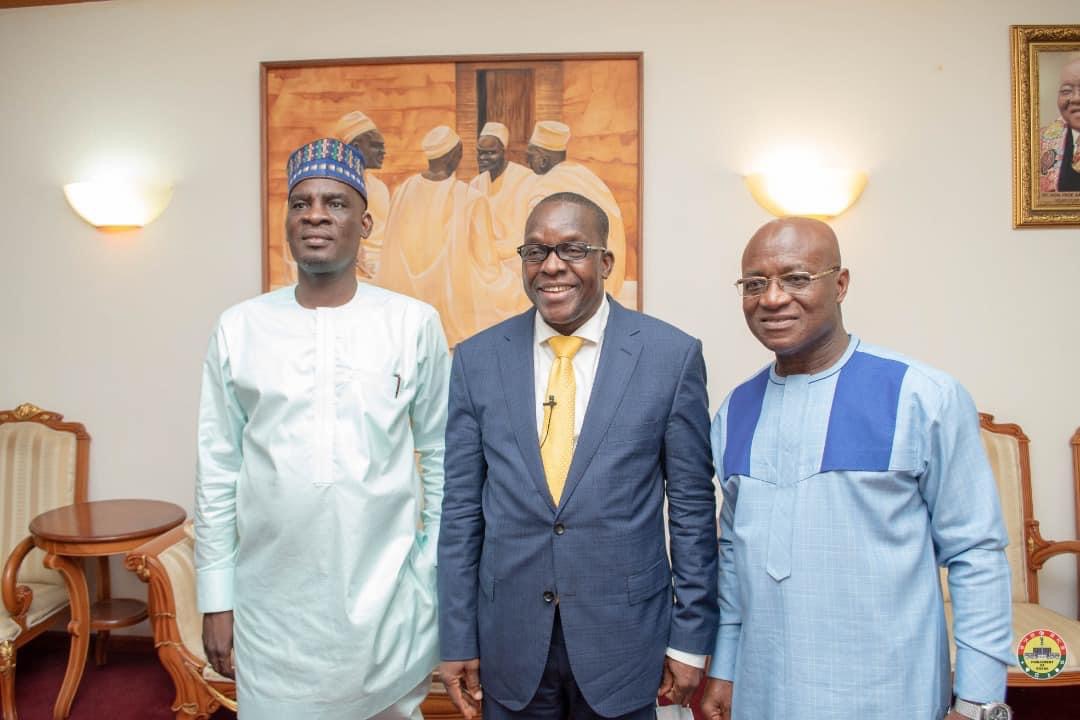Power, it is said abhors vacuum and in all political power arrangements, it is critical that political vacuum is avoided as much as possible.
If what was exhibited by our Members of Parliament last Thursday dawn in the Chamber with all the ancillary events is anything to go by, then our governance experts need to immediately set in motion systems to tighten the current arrangements for bridging elapsing governance systems with the new ones.
When the 4th Republic was born in 1993, the election of the Right Honourable Speaker was done almost unnoticed. In 1997, when the New Patriotic Party members joined in, J.H. Mensah’s argument of the President being sworn in Parliament and before Parliament. Even though the argument was long drawn, it did very little to affect the swearing-in of His Excellency the President. The processes in 2001, 2009, 2013 and 2017 though very successful were all quite smooth.
On 7th January 2005, Members of Parliament Elect convened at 8.00am in Parliament to elect the Speaker. The new Parliament was to be made up of 128 NPP MPs, 94 NDC MPs, 4 PNC MPs, 3 CPP MPs and an Independent. The House had a convention that required the Majority nominating a sole candidate for the Speaker and First Deputy while the Minority did same for the Second Deputy, all approved by consensus, thereby taking away the need for balloting.
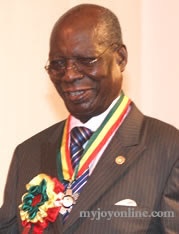
This time however, this was to change. No long after Hon. Felix Owusu-Adjapong as Majority Leader had nominated Mr. Ebenezer Begyina Sakyi-Hughes for the Speakership in response to nomination(s) by the Clerk, Mr. Ken E.K. Tachie, the NDC Minority led by Hon. Alban Bagbin rose to his feet in a very interesting spectacle and nominated Rt. Hon. Peter Ala-Adjetey also for the Speakership. He had previously been nominated by the NPP in 2001 and served as Speaker from 2001-2005. For some unknown reasons, Mr. Peter Ala-Adjetey whose nomination four years earlier had been met with a very stiff opposition from the NDC Minority had now endeared himself to the NDC Minority. The tenure of Ala-Adjetey ended up rather unsettling the NPP Majority and the Kufuor-led government which felt that he was asserting the independence of the Legislature a bit too hard. It was against this background that the NPP caucus sought to replace their former party National Chairman in 2005. For whatever reason, he was now the darling boy of the NDC Minority. With two candidates, the House had to resort to a laborious voting system, something that had not been anticipated. The process, though smooth took over three hours to complete.
With Mr. Sakyi-Hughes now elected and in the Chair, the NPP by convention nominated Mr. Freddie Blay (MP for Ellembelle) as candidate for the First Deputy Speaker and this passed without any drama. It was now the turn of the Minority to nominate the Second Deputy Speaker. The NDC Minority caucus nominated Hon. Kenneth Dzirassah (MP for South Tongu). The NPP Majority then decided to play back the mischief of the NDC by also breaking the convention and nominated Al-Hajj Malik Al-Hassan Yakubu (MP for Yendi). They had the numbers and he was elected after another two hours of secret voting. Thus, for the first time the NPP Majority caucus had annexed all three positions.
What these shenanigans did was to cause the swearing-in of President-Elect, John Agyekum Kufuor by some three more hours. Originally scheduled for 11.00am, the event had to be rescheduled to 1.00pm with all the attendant embarrassments to the State. Even though some lessons should have been learnt from that episode, it does not appear that any was learnt.
The tenure of the President expired at exactly midnight last Wednesday, 6th January 2021. By extension, the tenure of the Vice-President, Ministers of State (substantive and Deputies) had all elapsed. The 7th Parliament had also elapsed and thus there were no MPs, Speaker of Parliament and Deputy Speakers. The only functioning arm of State after midnight was the Judiciary led by the Chief Justice. Interestingly, though the pecking order of State is generally known to be the President, Vice-President, Speaker and Chief Justice in that order, the 1992 Constitution actually makes no explicit provision for the Chief Justice to assume the Presidency in the absence of the three. This is possibly because the framers of the Constitution may not have envisaged a situation where all three will be unavailable. They never anticipated a vacuum.
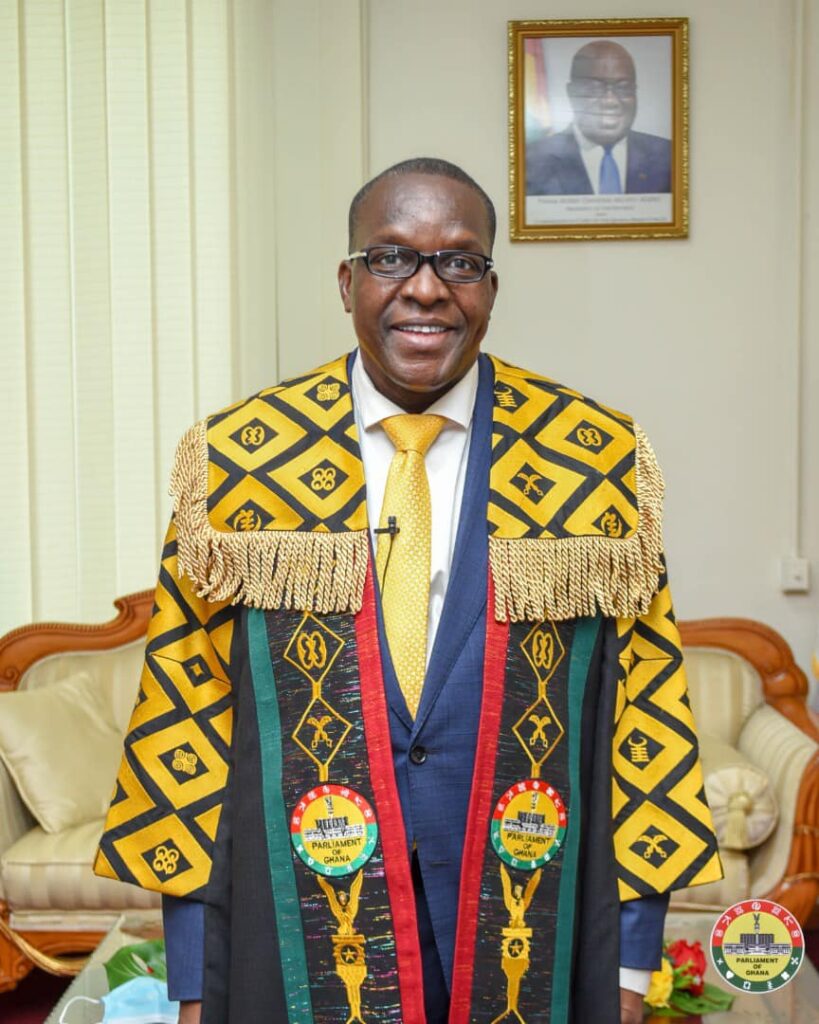
What this meant was that between midnight of the 6th till about 9.15am thereabouts the next morning (nine hours) when the Rt. Hon. Alban Bagbin was sworn in as Speaker, Ghana had no constitutional leadership. It will be recalled that the inaugurations of Parliament from 1993 to 2005 were all held in the morning of 7th January. However, arguments were subsequently advanced to reduce the long period of the interregnum. This led to the arrangement from 2009 where Parliament was now convened and inaugurated soon after midnight. In 2021, the President was sworn in well after midday, some twelve hours after the office became vacant. The implications of that twelve-hour vacuum is dire and steps ought to be taken to avoid such in the future.

We currently have in Ghana a practice where the Speaker is elected soon after midnight and sworn in by the Chief Justice, after which he then becomes the acting President until at about 11.00am when the Vice-President-Elect is sworn in and then becomes the acting President shortly before the President-Elect is finally sworn in thus becoming the President of the Republic. What remains unknown is how long the process of electing the Speaker will take. If events in the Chamber in the early hours of 7th January 2021 had escalated way into mid-morning or afternoon, Ghana would have been thrown into a constitutional crisis. Again, has it occurred to anyone what challenges the country could be plunged into should this chain of procedure between midnight and inauguration morning is broken by unforeseen circumstances such as a natural disaster, etc?
What will happen if for instance, the country gets under some foreign aggression within this interregnum when none of the acting Presidents would have the real power and authority to move Ghanaian troops during such emergencies that require absolute presidential orders.
I am of the firm belief that since the term of the President expires at midnight of January 6, the most effective approach to guarantee continuity in the governance of the nation will be to immediately swear-in the President-Elect.
In the United States of America, the President’s term of office is structured to elapse at noon of January 20 in his fourth year. The American Constitution directly allows for the swearing-in of the President-Elect just at about the same time, thus avoiding the creation of any power vacuum. In the United Kingdom where parliamentary democracy is practiced, there is no vacuum whatsoever in national governance. Immediately a party in government is defeated in an election, the Prime Minister visits the Queen to announce his or her resignation whiles the leader of the party which has won the elections simultaneously visits the Queen to enable her appoint him or her as the new Prime Minister. In both the American and British systems, the rules have been structured in a such manner as to ensure that no constitutional vacuum is created as unfortunately pertains in Ghana like we have just displayed a few days ago.
We can simply make new arrangements to swear in members of Parliament after which the President is immediately sworn-in before Parliament. In 2013, the tenure of Barack Obama’s first term as President ended at midday of January 20. The day was a Sunday and since Americans did not want any power vacuum to exist, President-Elect Obama was sworn-in at midday on January 20 in the White House, leaving the public inauguration to follow the next day at the Capitol Hill. For me, this is a very pragmatic way of going about the process. Ghanaians can conveniently adopt a similar arrangement where the President-Elect is sworn before Parliament immediately after the swearing in of the Members of Parliament-Elect. Just like the case of President Obama, the public inauguration could symbolically be held at the Black Star Square later in the day.
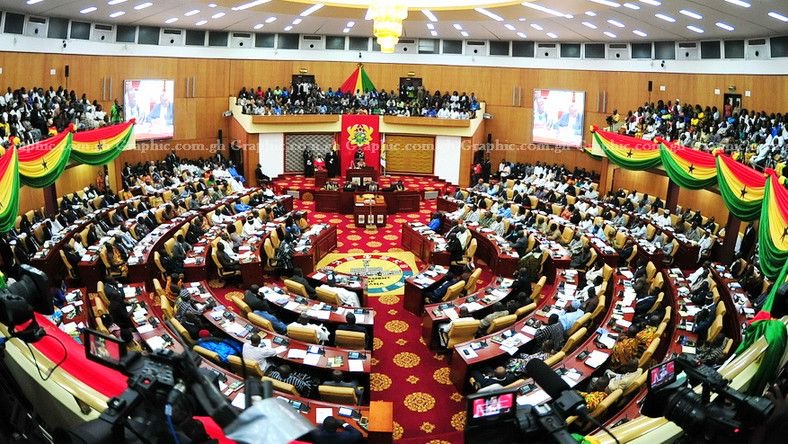
I noticed something very interesting on inauguration night in Ghana. Members of Parliament-Elect who had not yet taken the oath of office as MPs had the onerous duty of electing the Speaker at a time when they themselves were not yet members of Parliament. I sincerely believe that we need a review of that constitutional arrangement. What will it take for the Chief Justice to first swear in the Members of Parliament after which they will then elect the Speaker, also to be sworn into office by the Chief Justice. With that done, the First Deputy Speaker and Second Deputy Speaker will then be elected followed by the determination of which side constitutes the Majority and Minority so that their nominated leadership can be affirmed by the House. A rethinking in this regard will really be helpful.
Is it not incongruous that technically the MPs who misbehaved last Thursday may probably escape any punishment by Parliament simply because at that time the events happened, they were only MPs-Elect and not MPs. By not being MPs, they were technically not bound by the Standing Orders of Parliament. Dear reader, if you will recollect, Hon. Dominic Ayine (MP for Bolgatanga East) alluded to this when he was making his argument with regards to the proof of service of the injunction in the case involving the MP-Elect for Assin North. He argued that the service should have been done by the Court directly on the MP-Elect since he was not yet an MP for the service to be effected through the Clerk of Parliament.
The make-up of the 8th Parliament, as well as that of the leadership, offers the House a unique opportunity to review its Standing Orders and bring the, in line with the current exigencies. The Standing Orders were originally drafted when most of the evolving challenges could were not anticipated. Let our Parliament (our House of Representatives) take advantage of this and further advance the frontiers of our country’s democracy.
God bless the 8th Parliament and God bless our thriving democracy!
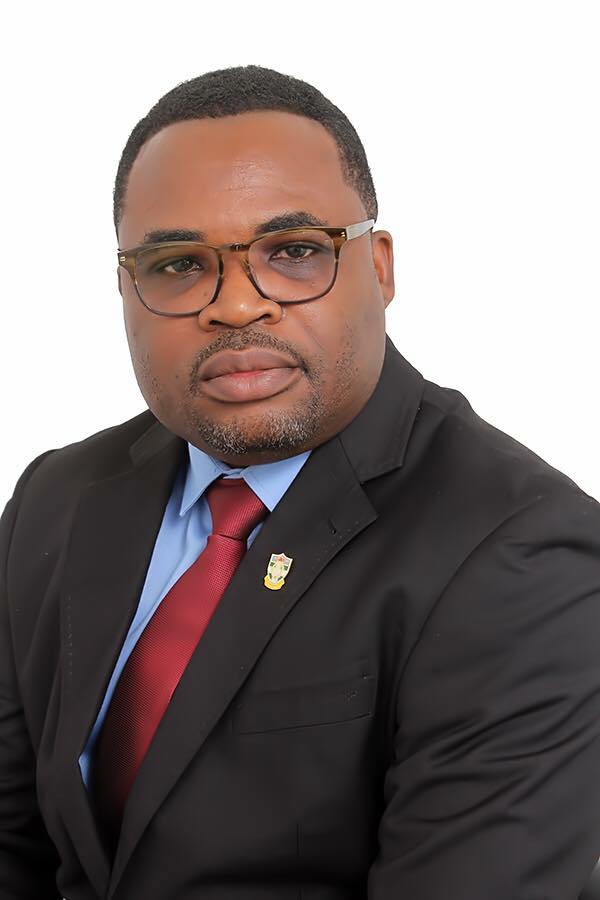
My dear friend,

